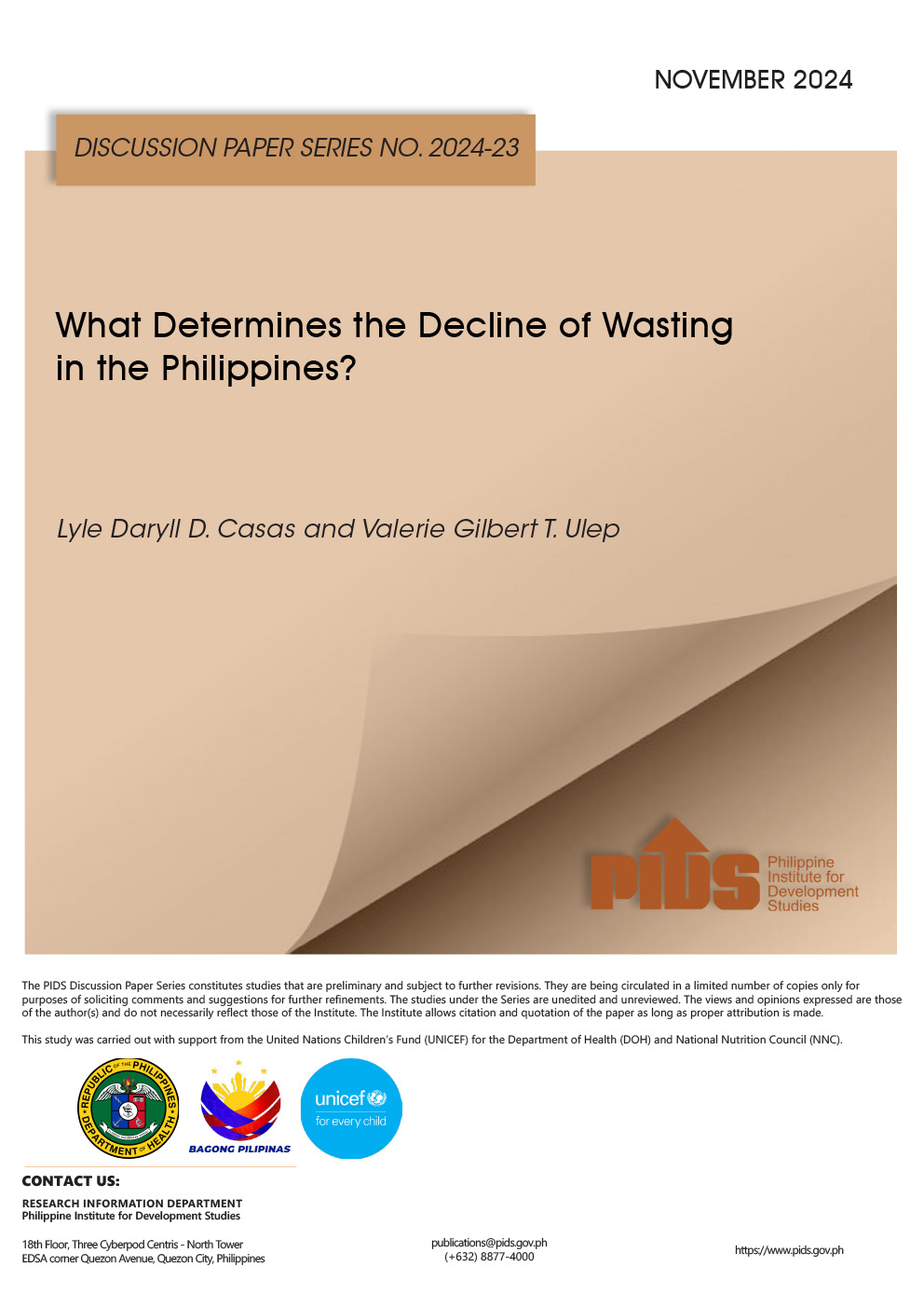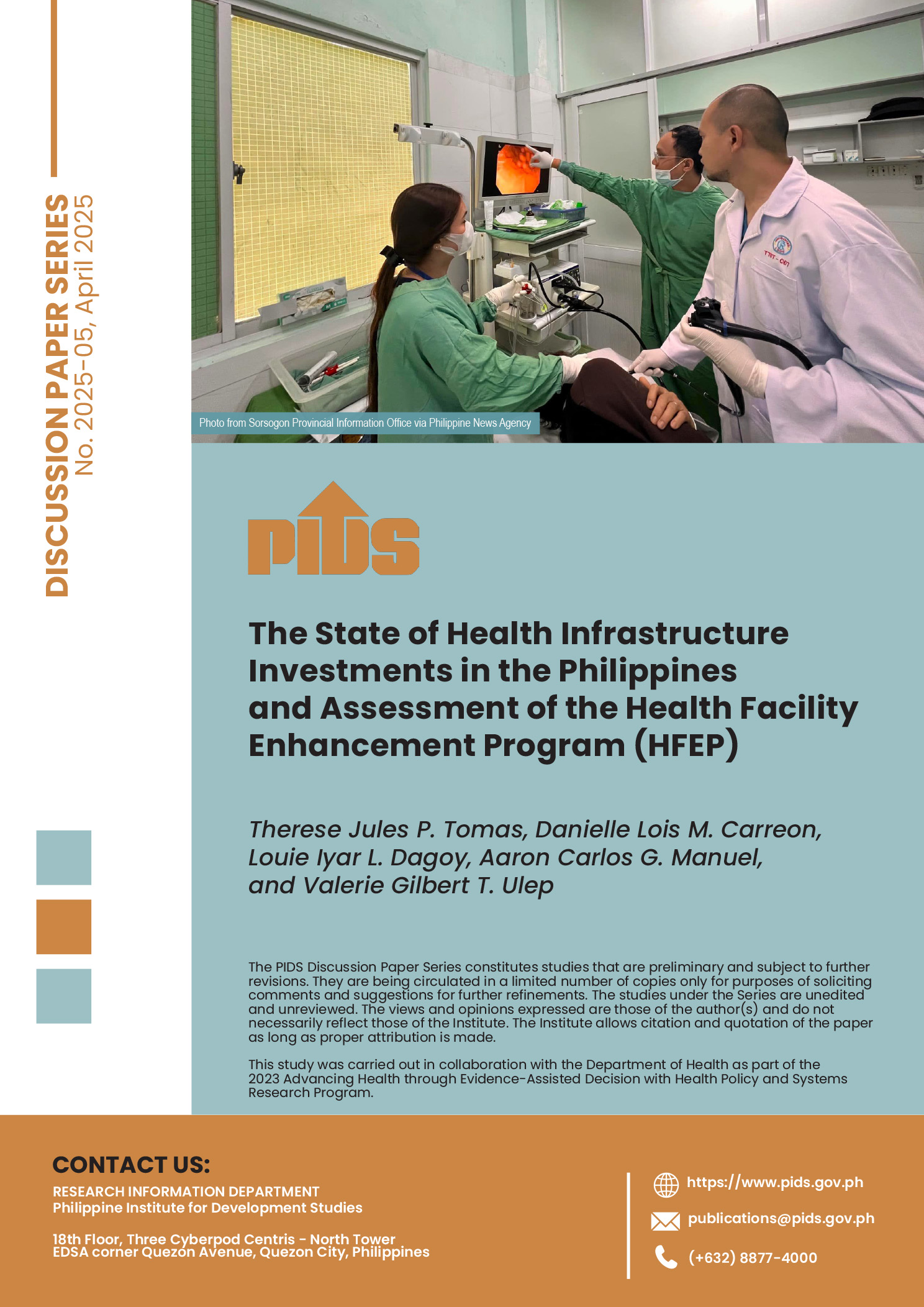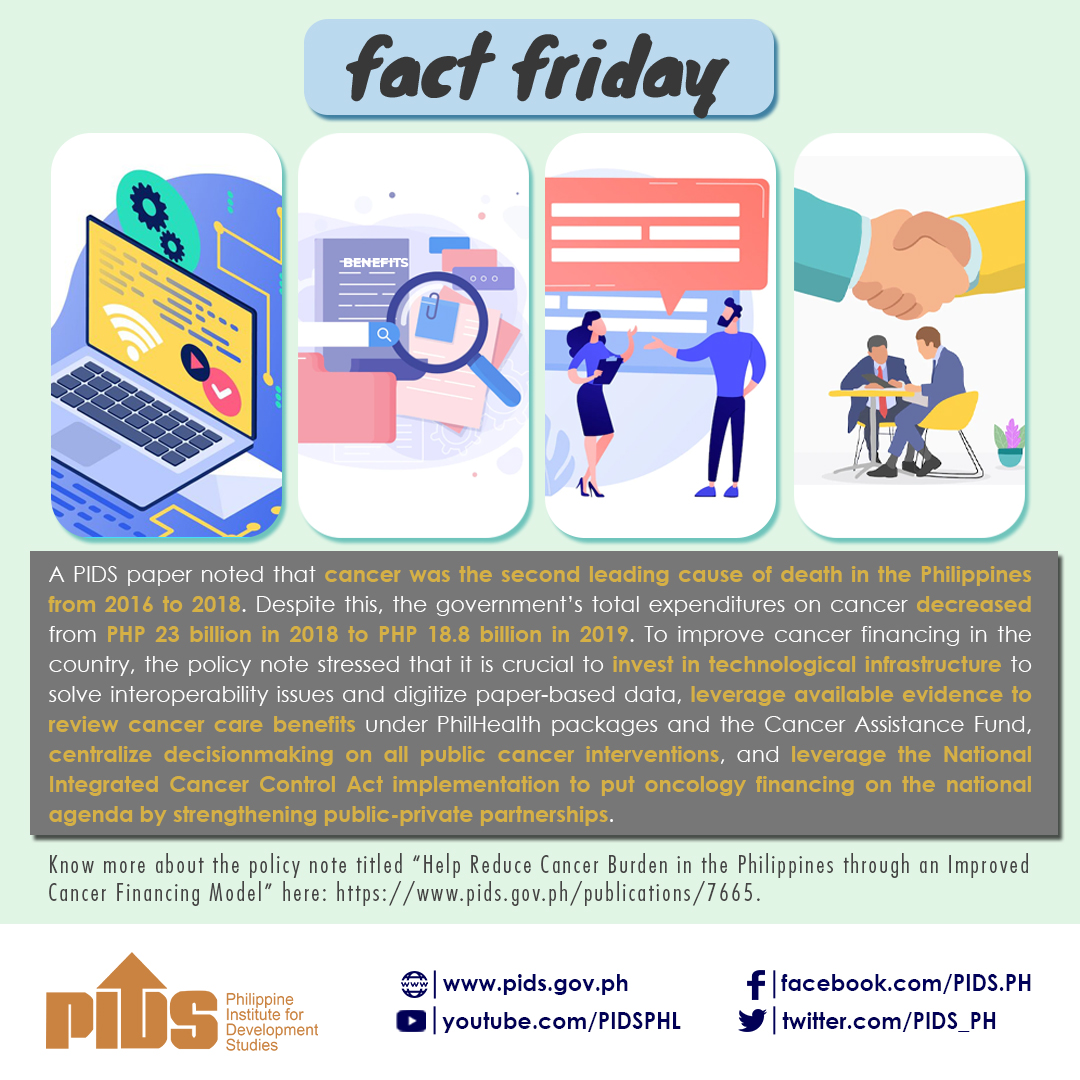SCREENING for breast and cervical cancer among Filipino women could be the lowest in the world with just 1 percent of eligible women getting themselves screened, the first step to cancer prevention.
Valerie Gilbert Ulep, senior research fellow at the Philippine Institute for Development Studies (PIDS), said at a recent presentation of his study that “a big portion [of the] country’s cancer burden is preventable” if only more early screening can be conducted among women.
Ulep said cancer patients in their most productive age of 40 to 69 years account for most deaths, resulting in untold social and economic costs to the country.
Data show that for breast cancer alone, 27,000 new cases are reported each year while 9,000 women die annually.
Low screening has been traced to lack of funds provided by government, especially for the poor. This results in very few government hospitals offering the screening service.
Also, many fear finding out that having cancer, and go for screening only when they are already suffering and it is too late.
“We are diagnosing cancer patients at a very, very late stage,” he said, adding “it boils down to (conducting) comprehensive preventative and curative interventions for the population” to save those afflicted.
Ulep further said the cancer screening rate in Malaysia and Thailand is 20 percent and “they are even worried that their rate is low.” Cambodia and Myanmar, he added, have better numbers than the Philippines. The West has a 50% screening rate.







